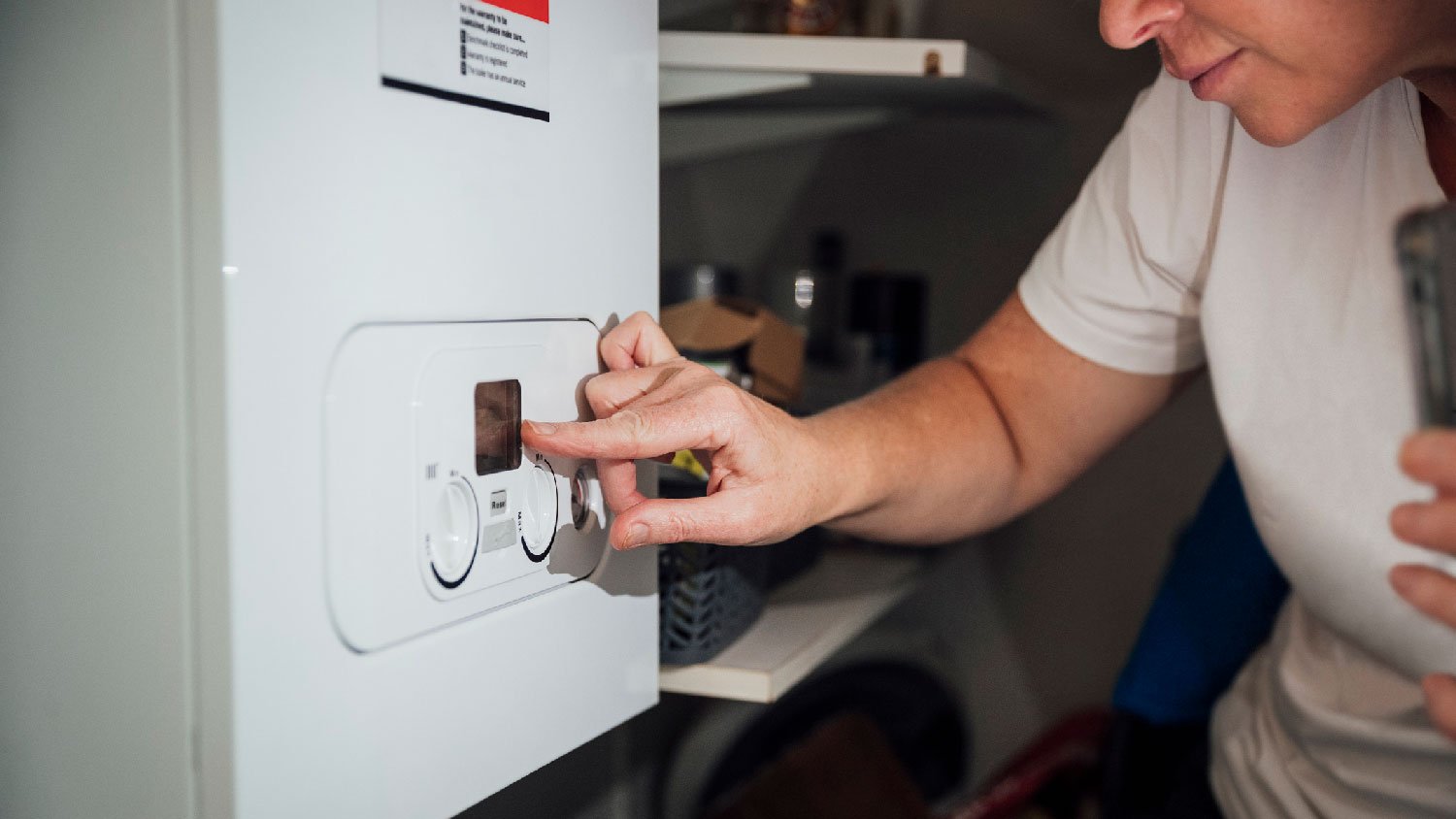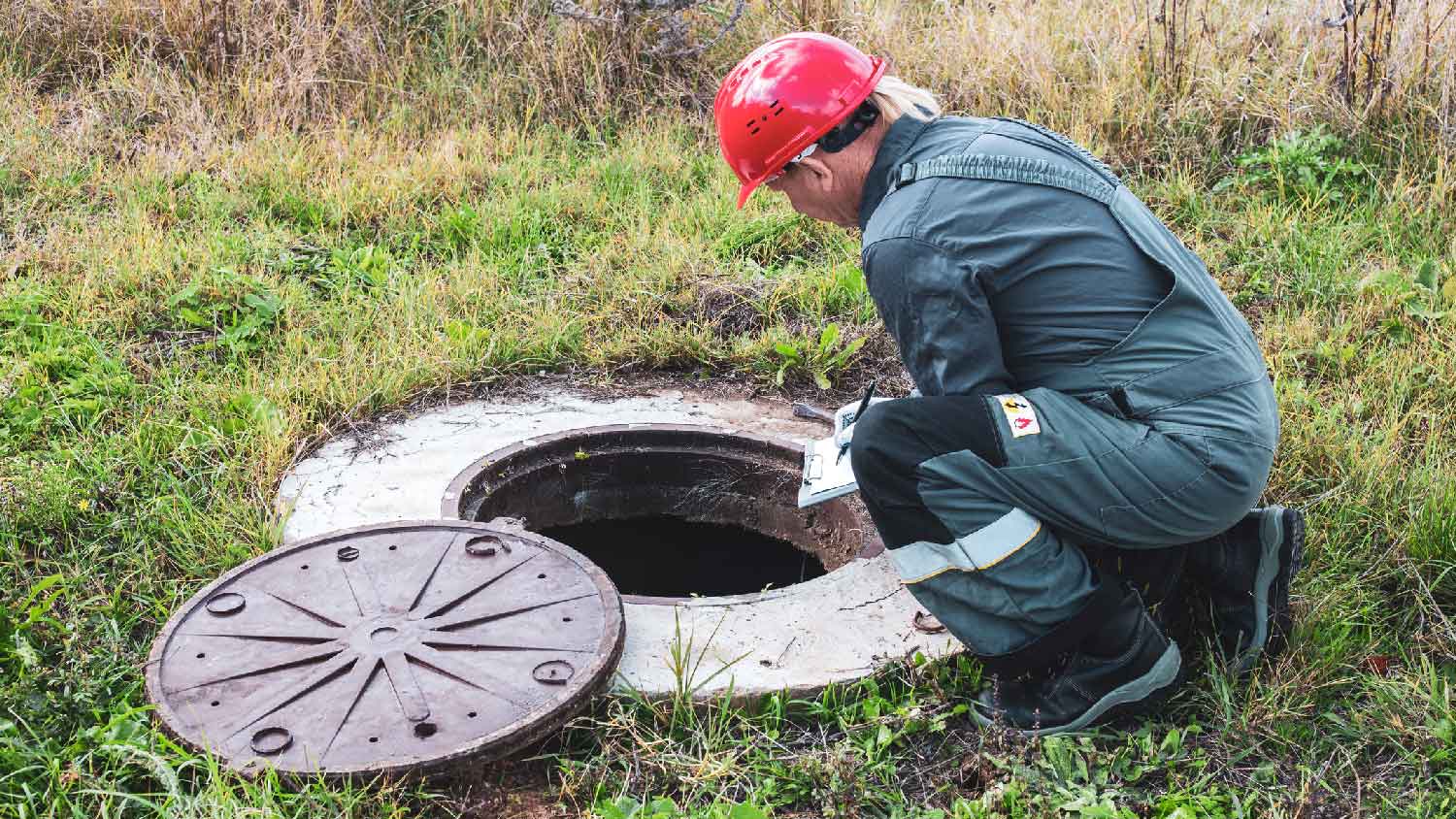
Many scenarios can lead to bacteria and other contaminants in your well. Learn about how much it costs to shock a well so you can enjoy clean drinking water.
These problems can really stink—luckily, there are solutions


Sulfur smells from well water occur in the presence of hydrogen sulfide gas, or H2S.
Activated carbon filters can help reduce the sulfur smell if H2S levels are under 1 mg/L.
Oxidizing media filters can reduce sulfur smells if H2S levels are up to 6 mg/L.
Shock your well at least once per year to mitigate odors.
Schedule annual well inspections to test for harmful bacteria and other contaminants.
You’re hopping into the shower after a long day, only to be hit with a pungent odor that can only be described as the smell of rotten eggs. You know deviled eggs aren’t on the menu tonight, so why does your well water smell like sulfur? As it turns out, this is a common phenomenon, but it’s not something you have to live with. Here are three reasons that your well water smells like sulfur, plus how to fix it.
A sulfuric smell doesn’t always mean that something is wrong with your water. This smell can occur naturally from hydrogen sulfide gas (H2S), which occurs naturally when organic matter breaks down in the soil. This smell can leach into the groundwater that’s eventually pumped throughout your home.
The sulfur smell can also originate in the well itself or in your plumbing. Microorganisms known as sulfur bacteria release H2S, and they thrive in dark, wet wells and plumbing pipes. This smell can be released with the water when you turn on the tap.

Sulfur bacteria aren’t limited to the well or the pipes around your home. The warm, moist environment inside a water heater is similarly ideal for sulfur bacteria to thrive and release H2S gas. However, water heaters can also produce H2S through a chemical reaction between the magnesium metal inside the anode, which helps reduce water heater corrosion, and sulfate that naturally occurs in the well water.
A pro can help find an anode made from other metal materials to reduce odors, or they can suggest ways to kill the sulfur bacteria with chlorine or high heat. Because chlorine or high heat can pose risks to human health, like respiratory irritation or burns from hot water, it’s best to leave these solutions to a pro.
Now that you know why well water smells like sulfur sometimes, you can learn how to fix it. There are several steps you can take to get rid of the unpleasant (but often harmless) odor and confirm that the water is actually safe from other contaminants.
One of the most important things to do, whether your well water smells like rotten eggs or not, is to test your well water regularly. Test your well water at least once per year for bacteria and contaminants such as E. coli and nitrate.
If your water suddenly starts smelling like sulfur or other odors or looks or tastes different, schedule a well inspection to be sure the water is safe. A well inspection costs $250 to $550 on average.
Shocking a well is a process where you add chlorine to the well to help remove contaminants and bacteria, including sulfur bacteria. Shocking a well costs $80 to $200, and it’s worth adding to your budget if you want to get rid of sulfur smells in a well.
You should shock your well at least once per year, but consider leaving this job to the pros during the annual well inspection to ensure you don’t add too much chlorine to the water. If chlorine in tap water exceeds 4 milligrams per liter, it could damage your plumbing. Too much chlorine in your water could also pose health risks, such as respiratory irritation, coughing, dry skin, and difficulty breathing, according to the U.S. Centers for Disease Control and Prevention.
If the source of the smell is coming from the groundwater, aeration can help push the H2S gas out of the well by pumping air into the well. This solution can help reduce sulfur smells from the well and get rid of iron bacteria, which can cause rust-colored stains, discolored water, and musty-tasting water when left untreated.

Another option to mitigate the smell and taste of sulfur bacteria in water is to use water treatments, such as activated carbon filters, for your plumbing. Activated carbon filters can help neutralize odors if you have less than 1 milligram per liter of H2S in the water, and oxidizing media filters can help mitigate smells from H2S levels of up to 6 milligrams per liter.
If your well is more than 25 years old, it may have a buildup of decaying matter and sulfur bacteria that are difficult to fully eradicate. If you’ve installed water treatments, disinfected the well, and aerated the well and still notice the well water smells like sulfur, it may be time to hire a pro to drill a new well or upgrade some of the parts of the well, such as replacing the well tank.
The best way to find the source of sulfur smells in your well water and treat them is to hire a well and pump contractor near you. A pro will come to inspect the well, well pump, and plumbing to find out where the bacteria and H2S gas are building up. Then, they can decide which treatment will be most effective. Not only will this save you time on treatments that aren’t targeting the source, but it will ultimately save you money, too.
The crew worked very diligently and efficiently, the house looks better than it ever has and they were quick and friendly and Omar was a class act!
Hunter came out estimated my job,cut down and hauled away 3 very large Oak trees that was very close to my clients house. Cleaned up everything very nice. I would highly recommend him and his crew
We hired KDK to remodel our master bathroom. Our experience from the first conversation thru the final inspection was fantastic. Dave has great ideas, incredible attention to detail, is very communicative, and is easy to work with. He helped us cut costs where he could, made great design...
Experts in all areas of electrical work and displayed exceptional workmanship.
"The appraiser was incredibly professional and efficient. She provided prompt service and a detailed appraisal report, showcasing her attention to detail. I was impressed by her professionalism throughout the process. Highly recommend her services!
Ground Effects has performed two projects for us. Initially they had constructed a paver patio, retaining wall and paver sidewalk in 2014. The second project in 2022 consisted of a fire pit, retaining wall, drainage and driveway improvements around a newly constructed barn. The work was...
We got our master bathroom remodeled and went with this company. We canâ t say enough good things about them! Went above and beyond for us, literally. Basically designed the whole bathroom for us. They were so reliable, great efficiency, very affordable, worked with us so well in every way...
Jorge Silva is an excellent technician and made sure I understood the issues and what it would take to repair them! I highly recommend the company and him especially to handle your HVAC needs!
Gonzales Tree Services was one of three companies I contacted. They are insured and bonded and even showed proof of coverage. They did good work, showed up on time, and communicated very well. If I have any future tree trimming needs, I will call them again.
Responded quickly to my request for an estimate for repair of our home roof and replacing the roof on a shed. Provided excellent customer service and did a great job on the roofing and repair. I hope I donâ t need them again but if I do I would definitely use them again.
From average costs to expert advice, get all the answers you need to get your job done.

Many scenarios can lead to bacteria and other contaminants in your well. Learn about how much it costs to shock a well so you can enjoy clean drinking water.

Dry wells are handy for anyone who’s experiencing drainage problems. But dry well installation costs can vary depending on its size, location, and volume.

When your water system isn’t working as intended, it’s time to repair your well pump. This cost guide will break down well pump repair costs and the parts involved.

Replacing a well pressure tank can be a DIY job if you’re handy at plumbing. Follow this guide to install your own well pressure tank or find a pro to help.

Dive into our guide on well pipes and what size water line you need from your well to your house for a worry-free water supply system.

Tap into freshwater with a DIY well. Learn how to dig a well by hand with these steps, and enjoy cost savings and a natural water source.